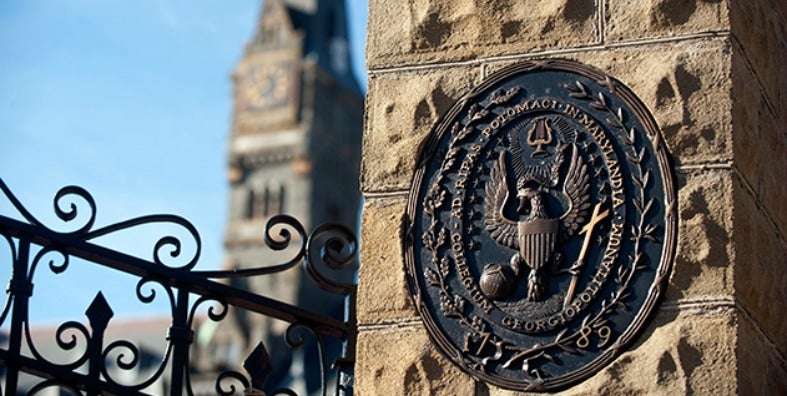Title: Georgetown Lauded by Carnegie Foundation for Community Engagement
Georgetown receives the 2015 Carnegie Classification for Community Engagement for its commitment to its surrounding Washington, D.C. neighborhoods and global communities.

The Carnegie Foundation for the Advancement of Teaching has renewed Georgetown’s prestigious classification as one of the nation’s premier institutions committed to community engagement.
The university is among 361 colleges and universities to receive the 2015 Carnegie Classification for Community Engagement, which extends to 2025.
“These are campuses that are improving teaching and learning, producing research that makes a difference in communities, and revitalizing their civic and academic missions,” says John Saltmarsh, director of the New England Resource Center for Higher Education (NERCHE).
The NERCHE partnered with the Carnegie Foundation to administer the community engagement classification.
Commitment to Common Good
President John J. DeGioia attributes the university’s long history of service and community engagement to Georgetown’s Catholic and Jesuit identity.
“Our commitment to the common good, to engaging productively and positively with our community locally and globally, is at the core of this tradition and at the heart of what we do at Georgetown,” he says.
Strengthening Engagement
Since 2008 – when the university first received the classification – Georgetown has created two new offices dedicated to strengthening community engagement across the university.
The Office of Community Engagement and the Office of Global Engagement support the university’s commitment to the common good by facilitating community engagement activities in Washington, D.C. and around the world.
Georgetown also has developed academic programs that feature community engagement as a major component – including a master’s in global human development, a minor in education, inquiry and justice, a justice and peace studies major, and a Global Social Enterprise Initiative.
Core Educational Purpose
As we face new challenges in higher education and explore new ways to educate our students, we remain committed to the core purposes of the university – formation, scholarship and the common good – all tenants to which deep and meaningful community engagement is essential.”
—John J. DeGioia, Georgetown President
Georgetown launched the Designing the Future(s) of the University initiative in 2013 to explore new ways to deliver education for the 21st century while retaining its core values.
“As we face new challenges in higher education and explore new ways to educate our students, we remain committed to the core purposes of the university – formation, scholarship and the common good – all tenants to which deep and meaningful community engagement is essential,” DeGioia says.
The integration of community engagement in the classroom is a key component of the Carnegie classification.
Countless Examples
Georgetown students engage in service learning opportunities through courses, programs and centers at the university. Numerous faculty and staff members also partner with community organizations through research and consulting projects and serve in leadership roles.
Through these experiences, students and faculty and staff apply their skills and knowledge to communities struggling with some of the world’s greatest challenges.
Service learning extends outside the classroom as well, with students participating in community service activities and service-learning courses through the Center for Social Justice Research, Teaching, and Service (CSJ) and through medical and legal clinics at the School of Medicine, the Law Center, among many others.
“This is an institutional recognition of community engagement,” says Andria Wisler, CSJ executive director, “and the process produced countless examples of our commitment to community engagement and social justice through deep community partnerships and creative curricular and experiential learning initiatives.”